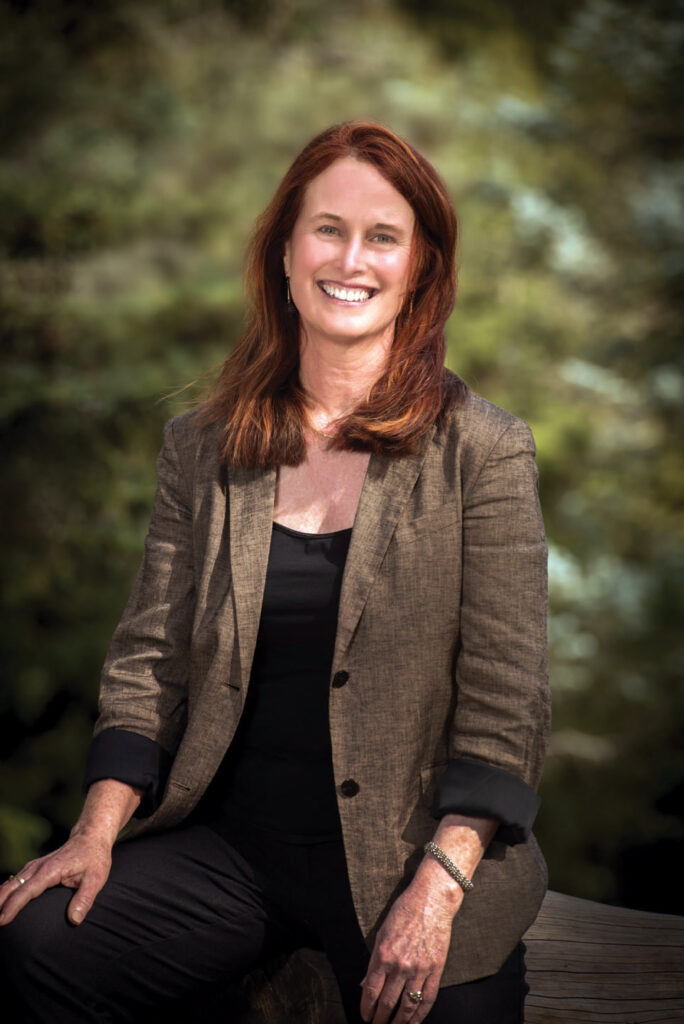
Director of Lifecourse Epidemiology,
Brigham and Women’s Hospital
(Photo by Stu Rosner)
What excites you about doing research on sex differences in health and disease?
We have learned about body systems as if they are independent of each other, and the chapter on pregnancy often got skipped because it was in the back of the textbook! As a result, pregnancy and cardiovascular disease were treated as separate silos, where OB-GYN researchers rarely interacted with cardiology researchers. But we’re learning so much about the intersections between reproduction and other body systems. Exploring large databases shows that pregnancy outcomes—particularly complications such as preeclampsia or preterm delivery—are potent predictors of future risk of hypertension, diabetes, heart attack, and stroke. The siloed approach hid these important connections.
Your “Sex Differences for Skeptics” lecture mentions new evidence showing biological sex goes beyond a simple female/male binary. Can you elaborate?
We’ve long thought about biological sex in terms of traits conferred by genes, sex hormones, and reproductive organs. But gene expression is profoundly affected by our environment and our experiences. There’s much more variability to our genes than we ever realized, and all of it affects our sex and gender experiences. We know sex chromosomes function in all cells, not just those associated with reproduction. Additionally, sex hormones change over the course of our lives, and reproductive organs can be removed. What we think of as biological sex is neither a binary nor a spectrum, but more like a ball of multicolored yarn, with variability at any point in time and across the life course.
What we think of as biological sex is neither a binary nor a spectrum, but more like a ball of multicolored yarn, with variability at any point in time and across the life course.
Do you have any predictions for the near future?
I think the science of sex differences will produce a lot of findings in the coming years, stimulated by mandates from NIH [National Institutes of Health] to include all sexes in studies. As with any sudden flurry of discovery, some findings will hold up as important sex and gender differences, and some will fail to replicate. As frustrating as it is to wait for a second study to replicate an initial finding, it’s a critical step we can’t shortcut.
What are some questions pushing your research forward?
Understanding more about the pathways from common pregnancy complications to future cardiometabolic disease. What are the shared risk factors? What are the typical risk trajectories after pregnancy? When should we screen for cardiometabolic risk and what should we screen for? Answers to these questions and more will involve everything from statistics, to psychology, to clinical innovation.
What do you hope will be your most significant scientific legacy
In lifecourse epidemiology, we examine how factors early in life predict health outcomes decades (sometimes even generations) later. The more research I do, the more I appreciate that the health of our children and young adults is critical to the health of our future seniors. I hope our work leads to a new focus on cultivating and protecting health in early life—including the expansion of healthcare coverage to all people who can get or are already pregnant.
What would you tell your younger self from where you are now?
Earlier in my career, I had three children under the age of four. And despite the world’s best partner and good childcare, there were days when it all seemed impossible. I want to say to that young parent, “Keep going. The children are howling, your grant just got rejected, and you have to teach a course tomorrow morning. It seems impossible right now, but it will get easier. You don’t have to win the race. Just keep your oar in the water for now.”
Do you have a favorite quote or mantra?
There’s an almost certainly spurious quote from Einstein that buoys me: “If we knew what we were doing, it wouldn’t be called research.” I love how it claims the wilderness of the scientific process, that it’s okay to feel a bit lost. Some of the best work is born from confusion. That’s where the new ideas dwell.
Who are some of your scientific heroes?
I’ve learned that the quality of any science is only as good as the quality of the scientists: both their knowledge and talent, and their integrity and willingness to share ideas and questions. We attract an amazing pool of talent here at the Brigham, and there are heroes all around. It’s a privilege to conduct science among people who inspire me every day.

